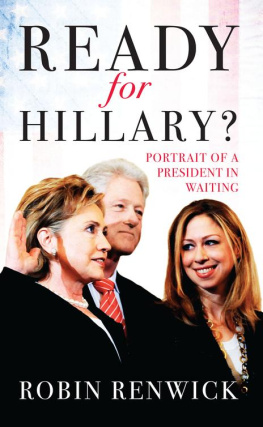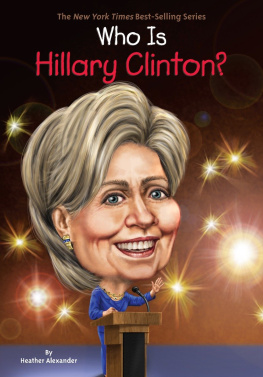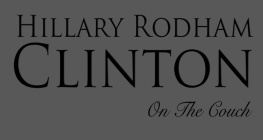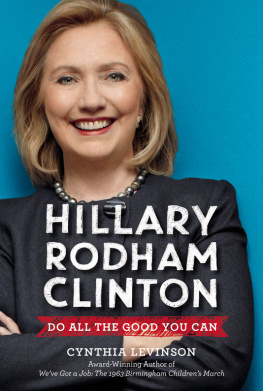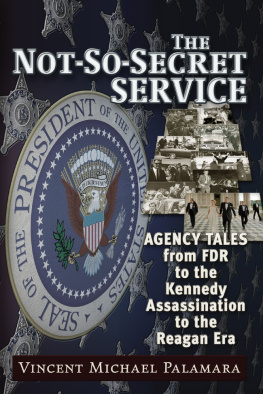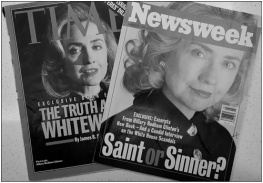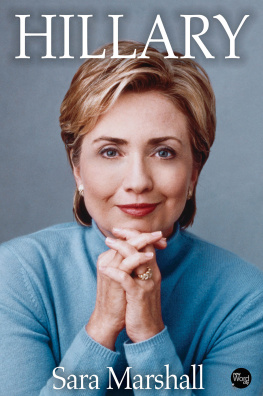D URING THE BUSH/CLINTON election in 1992, I was the British ambassador in Washington. Our relationship could hardly have been closer with the outstanding Bush foreign policy team Baker, Scowcroft, Colin Powell, Eagleburger, Gates and others but I soon discovered that the domestic policy advisors were fractious and divided and nor was the President as interested in domestic as he was in foreign policy, at which he excelled. It was difficult for the government in London to believe that the victor of the First Gulf War might be voted out of office, but James Baker was one of those who feared that this could happen. This caused us to take a close look at the field of Democratic Party contenders, known at the time as the seven dwarves. The most credible of them seemed to us to be the still little-known New Democrat Governor of Arkansas.
Jonathan Powell, first secretary in the embassy, was asked to follow the fledgling candidate around on the Clinton bus in New Hampshire, graduating thereafter to the Clinton campaign plane, bringing him into daily contact with many of Clintons closest domestic policy advisors. I kept in touch with those members of the Democratic foreign policy establishment Warren Christopher, Strobe Talbott, Tony Lake and Richard Holbrooke who seemed most likely to feature in a Clinton administration, if there was one.
The fact that we had sought them out beforehand was appreciated by them when they descended on Washington. My friend Katharine Graham gave a dinner for the Clintons before the inauguration, at which Bill Clinton thanked me for this and I met a beaming Hillary, who invited us to dinner at the White House not long after they moved in. It was not difficult to establish a good personal relationship with Bill Clinton, as that was and is his forte but that went for Hillary too. Far from finding her to be the left-wing virago portrayed by the right-wing talk shows, she was personally very friendly and she and her staff were unfailingly helpful. Told that the redoubtable South African anti-apartheid campaigner Helen Suzman was staying at the embassy, Hillary turned out to know all about her, insisting on making a well-justified fuss of her at the White House. She enjoyed a lunch with Princess Diana, devoted in part to discussing how to protect their respective children from the press. Hillary was fiercely protective of Chelsea, letting the White House press corps know that they would write what they liked about her, but her daughter was off limits.
There was never any doubt at this time of the affection between the Clintons, notwithstanding the prior bimbo eruptions. Bill had only to squeeze her hand or give her a hug to produce a huge Hillary smile. They enjoyed whispering to each other, heads close together in conspiratorial fashion, a habit that has endured to this day. She also could get exasperated, as she did one evening when we were summoned together to Barbra Streisands dressing room. Hillary was in foot-tapping lets get out of here mode, while Bill fawned over the star.
As for the supposed project of sixteen Clinton years, Hillary in this period, assertive and demanding within the White House, doubted if she could ever get elected anywhere because I am so hard-hitting. she was unelectable. She had yet to start re-inventing herself enough to open up the possibility of elective office at all. Dedicated to pursuing progressive causes, she had a tendency to believe that her opponents were not just misguided, but also wicked.
Her husband helped to turn her into an anglophile, taking her to visit his old haunts at Oxford. Visiting Europe for the fiftieth anniversary of the D-Day landings, Hillary was thrilled that they were invited to spend the night on the royal yacht, Britannia, becoming an admirer of the Queen and the Duke of Edinburgh, who were very welcoming to her. These days she is addicted, when she gets the chance, to Downton Abbey.
Though highly intelligent and extremely determined, she also was alarmingly nave about the prospects for her great cause, healthcare reform. Having produced a fiendishly complicated draft bill over a thousand pages long, it was an absolutely traumatic shock for her to discover that there was no way she could get this passed into law and that, in the US publics opinion, the fact that she was married to the President did not entitle her to be a key domestic policy advisor.
Throughout this period, my efforts were devoted to trying to get the US to show the leadership needed to resolve the Bosnia crisis, which Europe clearly was incapable of doing. At the outset, I got no help at all from Hillary. To encourage her husband to stay out of foreign quagmires she had given him a copy of Balkan Ghosts by Robert Kaplan and I found Bill Clinton trying to quote to me Bismarcks statement that the whole of the Balkans was not worth the bones of a single Pomeranian grenadier. Hillary felt that people in the Balkans had been fighting each other for the past 900 years. If the US were to get involved, it would be like Vietnam.
When Katharine Graham arranged for the Clintons to meet Henry Kissinger on Marthas Vineyard, he found, to his surprise, that all they wanted to talk about was healthcare, not world affairs. When Madeleine Albright introduced them to Vclav Havel, President of the Czech Republic, who wanted the US to intervene in Bosnia, it was Hillary who cut the evening short by reminding her husband that they had more pressing domestic issues to deal with.
Two years later, the situation in Bosnia had deteriorated to a point at which I was asked to tell the chairman of the US joint chiefs of staff, General Shalikashvili, that we might have to ask for US military help in extricating the British and other contingents there. Meanwhile, General Mladi and his Serb forces had massacred the male inhabitants of Srebrenica, despite the presence of the Dutch UN peacekeeping contingent there. The British contingent in the equally vulnerable enclave of Gorade was very clearly next in line.
In these pretty dire circumstances, I asked to see the President on his own. His chief of staff, Mack McLarty, arranged this for me. I told President Clinton that if we allowed the Serbs to do in Gorade and other enclaves or in parts of Sarajevo what they had done in Srebrenica, I did not believe that the reputation of any western leader would survive, including his own. I was trying to combine my efforts with those of Richard Holbrooke and Tony Lake to get him to take decisive action.
I found to my relief that, by this stage, Bill Clinton agreed. General Rupert Smith, commanding the UN forces in Bosnia, had come to the same conclusion. A military ultimatum was delivered to General Mladi about the consequences of an attack on Gorade and the other enclaves. An attack by Serb forces on Tuzla triggered the bombing campaign that led to the Dayton Peace Accords. My White House friends had told me that I had a subterranean ally in our efforts to get the President over this line. This was Hillary, horrified by what had happened in Srebrenica and insisting that the US must respond.
Hillary today has a better chance than anyone else to be the next President of the United States. Hers has been an extraordinary political odyssey. The most damaging strike against her, her real and perceived desire to want to interfere in policy without being elected, was conjured away when she did get herself elected as the junior senator for New York. This was the decisive turning point in the story of the two Hillarys. For she found, in running for election, that she had to listen to her electors. When she started running for senator in that election, her media advisor Mandy Grunwald warned that people were used to seeing her only in stern situations. In private she was chatty, humorous and friendly. She needed to show herself to be more human and informal. Hard as she tried to take that advice to heart, in her race against Obama, she still was held to be less likeable than her pretty aloof opponent. Her time as Secretary of State has helped her to develop a more mature and less distrustful relationship with her nemesis the press.

